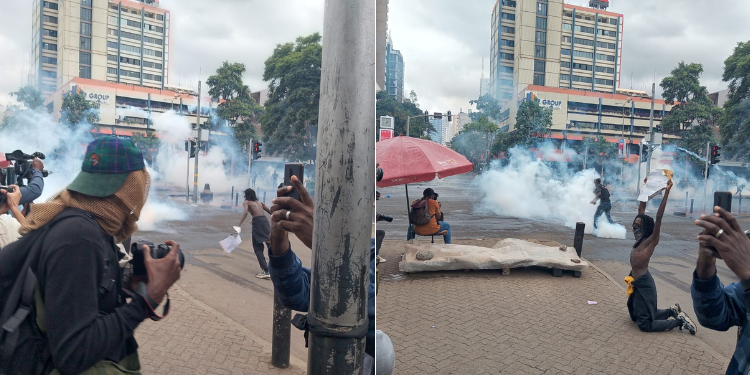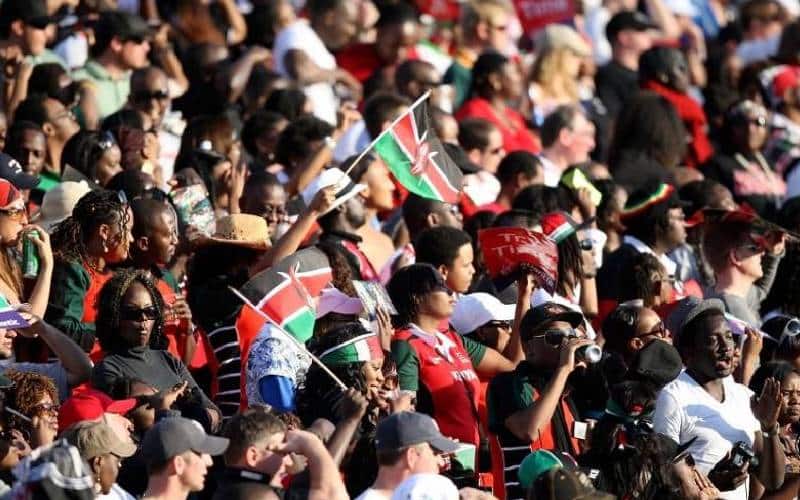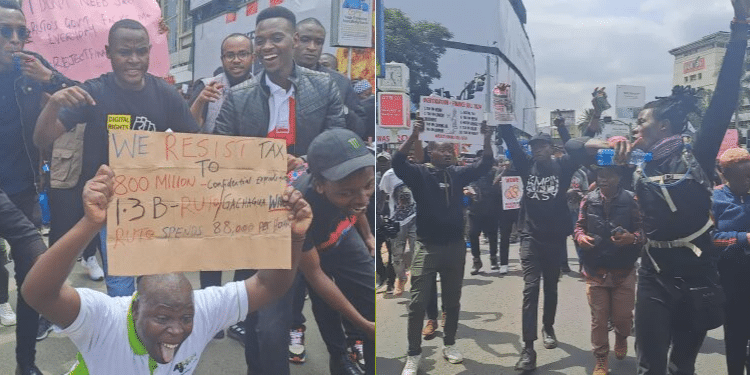Kenya’s anti-Finance Bill 2024 protests and increased cases of abduction have been featured in the 2025 State of Civil Society Report by CIVICUS, a global civil society alliance.
According to the report, the mass protests that erupted in Kenya helped inspire similar mobilizations in other African countries, including Ghana, Nigeria, and Uganda.
CIVICUS stated that discontent is often expressed through street protests whenever economic pressure intensifies.
Report Explains Why Protests Erupted in Kenya
According to CIVICUS, the events of 2024 provided further proof that rising prices of essential goods or the introduction of new taxes affecting those already struggling consistently trigger public demonstrations.
“The year saw a wave of protest across several African countries, led by first-time protesters from Generation Z. It started in Kenya, triggered by a plan to introduce sweeping tax increases,” read the report in parts.
“The measures were quickly reversed, but the protests continued. Similar protests followed in countries including Ghana, Nigeria and Uganda, all of which have large youth populations facing economic hardship and limited opportunities.”
Also Read: Report Reveals Number of Bloggers Killed in Kenya in Last 2 Years
Abduction of Government Critics
The report notes that protests driven by anger over the cost of living often evolve into broader demands for economic and political power, prompting states to respond with violent repression.
In Kenya, the report highlights, authorities were widely suspected of being behind the abductions, in an apparent attempt to intimidate activists who had not been deterred by the security forces’ violent response to protests.
“In Kenya, alongside security force violence against protesters, a disturbing pattern emerged of young activists being abducted by armed plainclothes personnel widely suspected of being state agents,” the civil group noted.
“Similar heavy-handed responses have followed in other countries, including lethal security force violence in Nigeria.”
CIVICUS highlighted that global institutions often exacerbate problems, with prescriptions imposed as loan conditions by the International Monetary Fund (IMF) frequently becoming the focus of public anger.
In Kenya’s case, for example- the tax hikes that sparked protests were part of an IMF-mandated package that also included public spending cuts and privatization measures.

Also Read: Only 5% of Kenyans Are Not Stressed About Financial Situation- Report
Anti Femicide Protests in Kenya
The report furth notes that 2024 was a particularly difficult year for women and girls in Kenya, with a disturbing increase in Gender-Based Violence (GBV) cases, particularly femicide.
In January alone, 14 femicide cases were reported, leading to nationwide protests organized by human rights and feminist groups and activists.
Despite increasing restrictions, Kenya’s feminist movements kept gender-based violence on the agenda by combining street protests, advocacy, and online campaigning.
“Kenya’s #EndFemicideKE protests encouraged survivors to seek justice and resulted in new government commitments, even though they faced the same police repression as economic protests,” the report pointed out.
“Activists again demanded action on rising femicides on International Day for the Elimination of Violence against Women in November, when they were also dispersed with teargas.”
Unemployment Among Youth
Also among concerns raised in the report is unemployment among the youth.
According to the report, young people around the world are leaving universities with knowledge and skills but find limited job prospects, leaving them facing potentially years of financial struggles.
The report highlighted that increased automation, driven by the growing application of Artificial Intelligence (AI), could further reduce employment opportunities.
Additionally, spiraling prices are leading to a housing crisis, with an acute shortage of affordable homes.
In many countries, young people face the prospect of never owning a home, instead spending an increasing proportion of their income on rent.
Follow our WhatsApp Channel and join our WhatsApp Group for real-time news updates.












































































